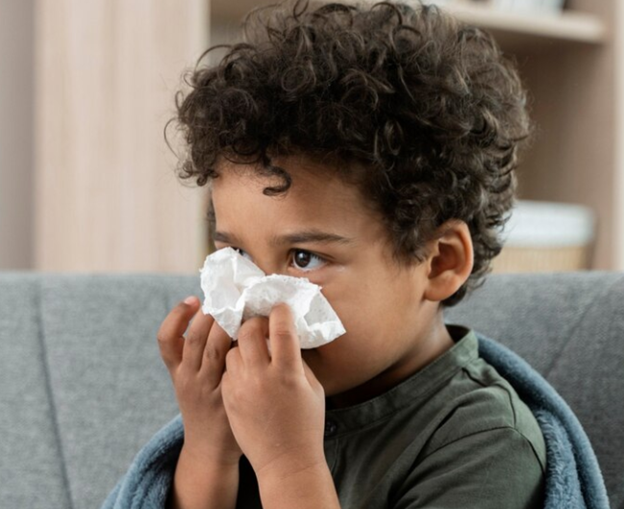What is Pertussis?
Pertussis (whooping cough) is a highly contagious bacterial disease that is transferred by coughing. People with pertussis have severe coughing attacks that can last for months. Infants that are too young for vaccination are at the highest risk for life-threatening cases of pertussis.
Symptoms of Pertussis
Typically, a whooping cough seems like a common cold, but it progresses fast.
Early symptoms usually include:
- Runny or stuffed-up nose
- Low-grade fever (less than 100.4°F) or no fever
- Mild cough
After 1–2 weeks, people may have coughing fits that can last up to 10 weeks. Babies may have pauses in breathing or struggle to breathe. Vaccinated people can get pertussis but may not get as sick.
Vaccine Recommendations
- Pregnant people should receive Tdap vaccine (whooping cough booster) at the earliest opportunity in their 3rd trimester (between 27–36 weeks) of every pregnancy. Vaccination during pregnancy helps pass on protective antibodies to the baby before birth.
- Babies and children should receive a dose of DTaP (whooping cough vaccines) at 2, 4, 6, and 15 months as well as 4–6 years of age. Children need a total of 5 doses to be protected from severe pertussis.
- Preteens and teens ages 11 years and older should receive a dose of Tdap
- Adults should receive at least one dose of Tdap
Why is Vaccination Important
- Newborns are at the highest risk of complications. Getting Tdap during pregnancy is the only way to protect your baby before birth. When given during pregnancy, Tdap is approximately 90% effective in preventing infant hospitalizations.
- Vaccines work very well at preventing severe pertussis, but protection from vaccines diminishes over time. It’s eminent that children, adolescents, and adults stay up to date on their vaccines to ensure they are protected.
Resources
As Whooping Cough Cases Increase, CDPH Encourages Tdap Vaccination
Whooping Cough - Vaccinate to protect

